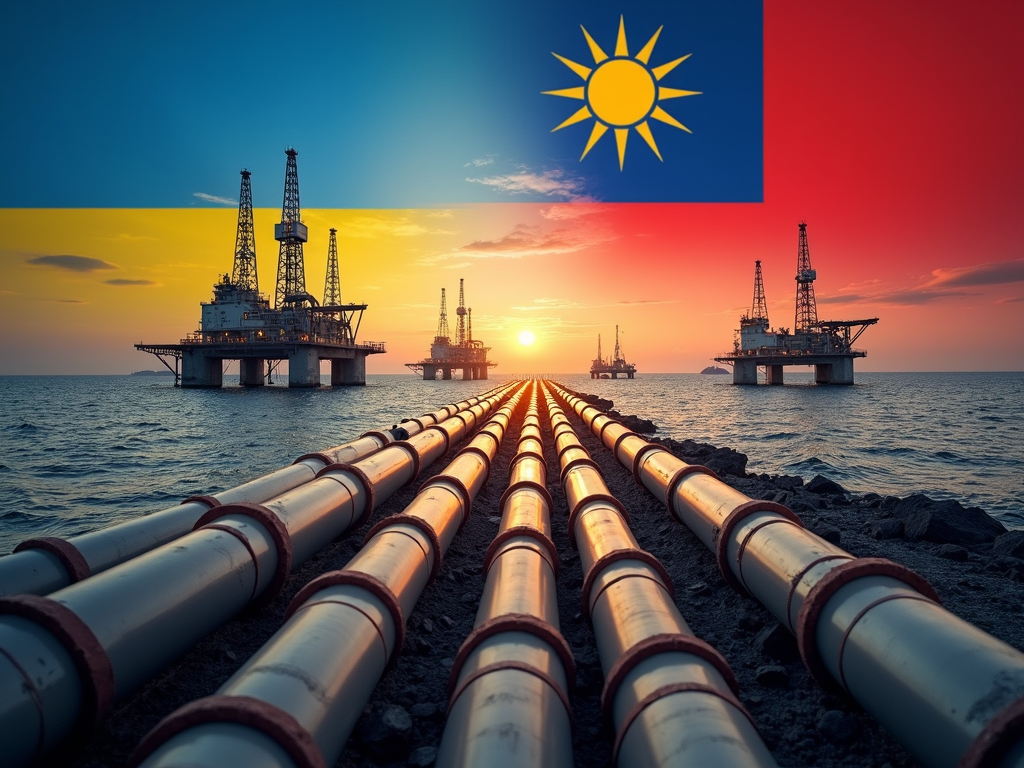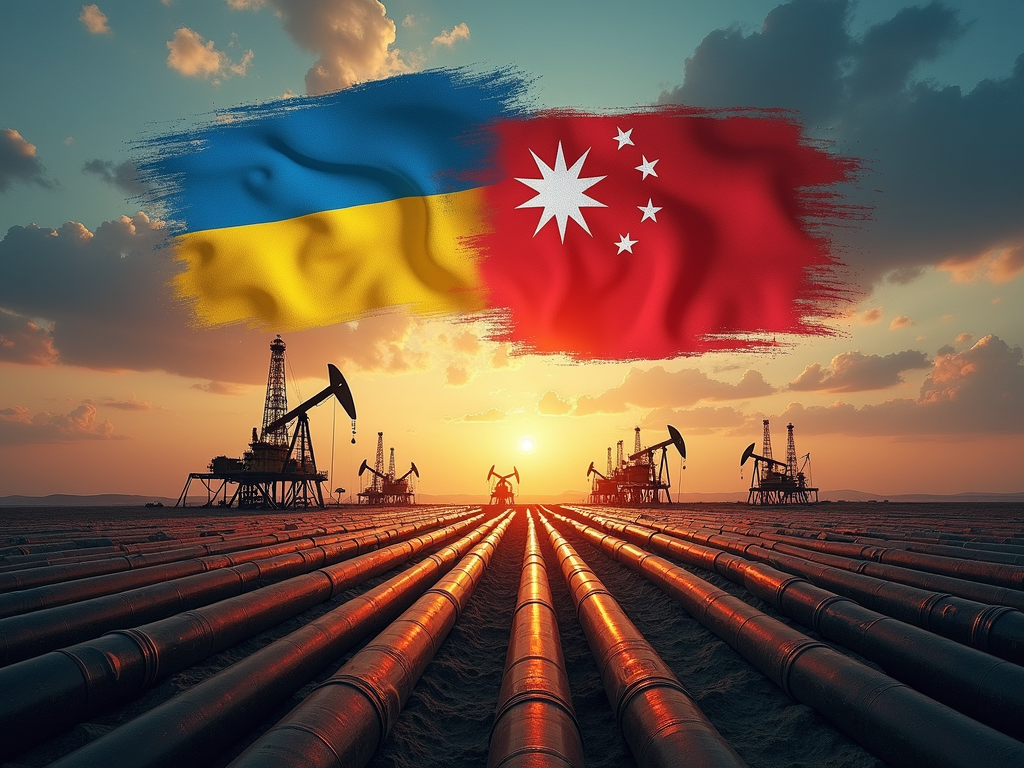In the midst of a global chess game, geopolitical tensions are influencing the markets like never before. The war in Ukraine and the Taiwan conflict are not just political crises, but also powerful levers driving up energy costs and putting pressure on the technology sector. This article explores how these conflicts affect the energy and commodity markets as well as the technology sector, and what strategies investors can use to weather these storms.
Energy and Commodity Markets Amidst the Geopolitical Storm: Consequences of the War in Ukraine and the Taiwan Conflict

The energy and commodity markets are currently facing unprecedented challenges triggered by the geopolitical tensions of the war in Ukraine and the Taiwan conflict. These conflicts directly impact the prices of oil, gas, and metals, and also influence the global economic landscape and investment decisions.
Since the onset of the war in Ukraine in 2022, sanctions against Russia, one of the world’s largest energy suppliers, have exacerbated the global energy crisis. As a result, energy prices have surged, as the world seeks to reduce its dependence on Russian energy supplies. This has led to a growing interest in alternative energy resources and an increase in demand for gold, traditionally considered a safe investment in uncertain times. These developments underscore how closely energy and commodity prices are tied to political events.
On the other side of the globe, the Taiwan conflict poses a potential threat to tech-driven commodity markets. Taiwan is a critical production hub for semiconductors, regarded as the heart of modern technology. An escalation of hostilities could disrupt supply chains worldwide, thus driving up prices for commodities like copper and iron ore. These metals are essential components in the electronics industry and renewable energy, explaining why their prices react so sensitively to geopolitical tensions.
The prices of energy, particularly for oil and gas, are acutely sensitive to geopolitical turbulence. In the Middle East, similar tensions in the past led to sharp price shocks that affected the stability of global supply chains. Today, market operators closely monitor events and cling to price stability, as the overall market climate remains subdued due to unpredictable developments.
Furthermore, the pressure on global markets is amplified by rising metal prices. Copper and lithium are key materials for the transition to a low-carbon future, and any disruption in their supply chains could fuel inflation and hinder economic growth. These factors highlight the need for market players to adopt proactive risk management strategies to tackle volatility.
In summary, it is clear that energy and commodity markets are heavily influenced by geopolitical risks. They present both opportunities and challenges for investors, who need to keep a vigilant eye on geopolitical developments as well as maintain a diversified investment strategy.
Technological Bottlenecks and Supply Chain Crises: The Double Blow of Taiwan and Ukraine

The geopolitical stage of the 21st century has put global markets to the test – particularly the technology sector and supply chains have been severely impacted by the Taiwan conflict and the war in Ukraine. These events, which can be classified as Black Swan events, are unpredictable and exert dramatic pressures on the global economy.
A central point of potential consequences concerns Taiwan and its key role in the global semiconductor industry. Companies like TSMC are world leaders in semiconductor production, which forms the backbone of nearly all modern electronic devices. Any military escalation in the Taiwan Strait could halt production, leading to a global chip shortage, which would have wide-reaching consequences not just for the tech sector, but for virtually all industrial sectors. Price increases and supply shortages would be the immediate consequences, casting a shadow over economic growth and consumer prices.
Simultaneously, the war in Ukraine causes enormous disruptions in supply chains, particularly regarding the impact on agricultural product trade and energy resources. Ukraine and Russia are among the major players in the global wheat and corn market. The war has already disrupted supply and increased food prices, compounded by energy issues stemming from sanctions against Russia, putting pressure on European energy infrastructures.
Faced with these complex challenges, it is crucial for companies and investors to adopt risk mitigation measures. Greater diversification of investment portfolios can help reduce dependencies on specific markets and regions. Moreover, implementing a risk management strategy is essential to be prepared for unpredictable events. Focusing on sustainability, particularly through investments in alternative technologies and energy systems, can also reduce vulnerability to geopolitical disruptions.
In summary, the Taiwan conflict and the war in Ukraine underscore the fragility of global markets and the necessity for proactive risk reduction strategies. With careful planning and adaptation, businesses and investors can not only maintain stability but also discover new opportunities in a constantly changing geopolitical context.